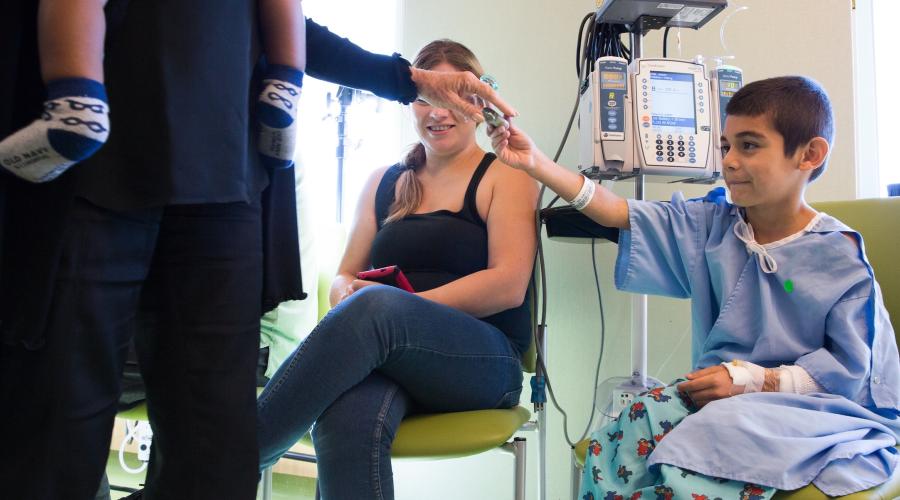
Breathing Fresh Air into Bone Marrow Transplants
Good lung health is important for children to have the best chance of recovering from leukemia, immune disorders, and other blood diseases, shows new research from UCSF pediatricians.
The treatment for some severe cases of these diseases can involve children having bone marrow transplants. The UCSF study, led by Matt Zinter, MD, shows that knowing the exact composition of the lung microbiome is an even better way to predict which children will survive these transplants.
The lung microbiome is a complex variety of microorganisms found in the lower respiratory tract. These microorganisms include bacteria, fungi and viruses.
Over 100 children took part in the study. The team tested them for lung function with a breathing machine that children often think of as a blowing game. They also measured the composition of their lung microbiome using bronchoalveolar lavage, a process that circulates a saline solution through the lungs of a patient under sedation.
“We found that patients with lungs depleted of their normal bacteria had higher amounts of potentially harmful bacteria that aren’t usually present in healthy lungs,” said Dr Zinter.
“Patients with depleted lung microbiomes also had worse lung function. This includes signs of scarring, trouble absorbing oxygen and damage at the cellular level.”
“We found that children with depleted lung microbiomes are two to three times more likely to die from bone marrow transplantation than children without depleted microbiomes.”
This is important as children who are about to undergo a bone marrow transplant to treat incurable blood diseases such as leukemia often undergo a hematopoietic cell transplant (HCT) – a hard reset that uses chemotherapy to wipe out all the patient’s blood cells before replacing them with a new set of donor blood cells.
“The problem is that HCT puts a lot of stress on the entire body, and about 12% to 39% of patients develop life-threatening infections and organ dysfunction, often affecting the lungs,” explains Dr Zinter.
“We don’t yet know whether microbiome depletion causes or results from lung disease. But our study suggests that the lung microbiome may be important in predicting bone marrow transplant outcomes.”
Dr. Zinter hopes that his team’s research will be used to develop treatments that restore or strengthen the lungs of high-risk children before they undergo transplantation.
Zinter is an assistant professor in the Division of Critical Care at UCSF Department of Pediatrics. The results were published in Science Translational Medicine.
